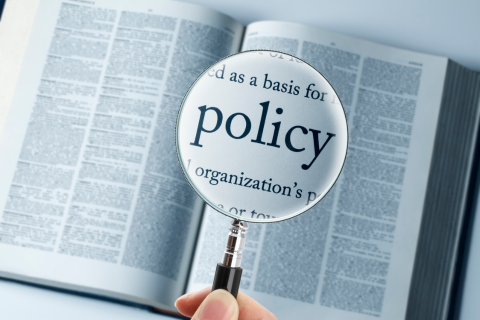Introduction to Working in Policy and Research
Policy and research play a fundamental role in shaping public discourse and influencing governments to invest in social impact. Many politicians and government officials rely on the research and ideas of policy researchers to implement new agendas or to raise awareness of critical social challenges. For example, several think tanks had advocated for decades to implement a more robust child tax credit, which was implemented in early 2021 and may cut child poverty in half in the US. Others continue to build the case for potential transformations in housing, healthcare, and education. Research and policy are critical to building the case for action and providing a roadmap for legislators, nonprofits, and businesses to follow towards social change.
Types of Entry Level Roles
One of the most common, entry-level roles in this field is Research Associate/Assistant. Research Associates are responsible for producing original research and working with senior team members to put together reports. While these positions are accessible for graduating seniors with relevant skills or experience (e.g., statistical programming such as Stata or R), a more generalist entry-level job is as a Special Assistant or Staff Assistant at a research-focused organization. This role is grounded in administrative support, often for a senior research leader, but also often includes elements of research or policy work. A very common path is to spend a few years as a Special Assistant in order to pivot into full-time research, although the ability to do that depends on the culture of your specific organization.
Hours and Pay: What to Expect
Unless you are working on a campaign, policy roles are usually standard work hours. When getting to the finish line of a big report or turning something around for your boss you may need to work on weekends or stay up for some late nights, but generally, the hours are around 9-6.
In terms of pay, there isn’t much diversity. Working in policy for an INGO will range as low as $35K and as high as $45K. Most research positions at think tanks, measurement firms, or university research centers will pay $40K-$50K. Government policy positions are the most variable in terms of pay depending on where you are working and whether it is a full-time or advisory position, but $40K-$50K is a reasonable expectation for those roles as well.
The 5 Types of Policy/Research Organizations:
Think Tank – A think tank (or policy institute) is an organization that performs research and advocacy. Most think tanks are centered around fundraising for a specific purpose or agenda. Sometimes these goals are partisan, and sometimes they are nonpartisan. If you are passionate about a specific topic and want to take a research angle to it, think tanks are a great place to start.
Entry level roles: Special Assistant/Staff Assistant and Research Assistant
Measurement & Evaluation Firm – Unlike think tanks, measurement and evaluation (M&E) firms often spend less time focusing on a specific agenda and more time using their research expertise on specific projects. Measurement and evaluation firms are often contracted to produce a specific report for a foundation, university, or other entity. If you want to become an expert at best practices for measurement and research, this is a great place to start.
Traditional job title in M&E: Research Analyst
University Research Center – Many universities house specific research centers on a range of topics. These research centers are more variable and often sit somewhere between a measurement firm and a think tank. One of the distinguishing characteristics of these research centers is that they are often considerably smaller than think tanks or measurement firms. If you enjoy being on campus and want the opportunity to manage student interns, working at a University research center can be a great place to start.
International Non-Governmental Organizations (INGOs) – The policy and research teams at INGOs are more communications-focused than at the other institutions. INGOs are involved in global health and poverty reduction campaigns in countries around the world. In an entry level role, your primary focus would be to make the case for the federal government and other global funders to invest more in your work. Working in these roles has a stronger emphasis on communications and writing ability一synthesizing existing research rather than conducting deep research on your own. Note: Because there is such an emphasis on influencing USAID and congressional staff, the majority of these jobs are based in DC. See Second Day’s International Development career guide, if you are interested in other internationally-focused positions.
Entry Level Roles: Policy Coordinator or Research Associate
Government or Campaigns – Policy research is core to the teams working for elected officials and candidates for elected office. Most campaigns (even city council or mayoral races) will have a policy team. Once in elected office, most administrations will also have a policy team, often with positions focused on a specific type of policy (e.g., Economic Policy Associate or Foreign Policy Advisor) or working for a committee of the legislature. These roles are incredibly competitive, so they often require building up specialized expertise or relationships with elected officials. They also represent some of the most influential positions in shaping government activity. For more detail on government policy positions, check out the Capitol Hill Guide and the State Government guide from Second Day
Where To Begin
- Start by researching some of the organizations that do this important work including J-Pal, Urban Institute, Mercy Corps, & the Center for American Progress.
- If you are interested in learning more about the range of think tanks out there, this database is a great place to start.
- There are ~10 large measurement and evaluation firms nationally (Abt Associates, MDRC, Urban Institute, Westat, Mathematica, NORC, Pew Research Center, CBPP, etc.) with many smaller or more specialized ones as well.
- A list of the largest nonprofits in the US can be found here or here. Many of these are internationally focused.


